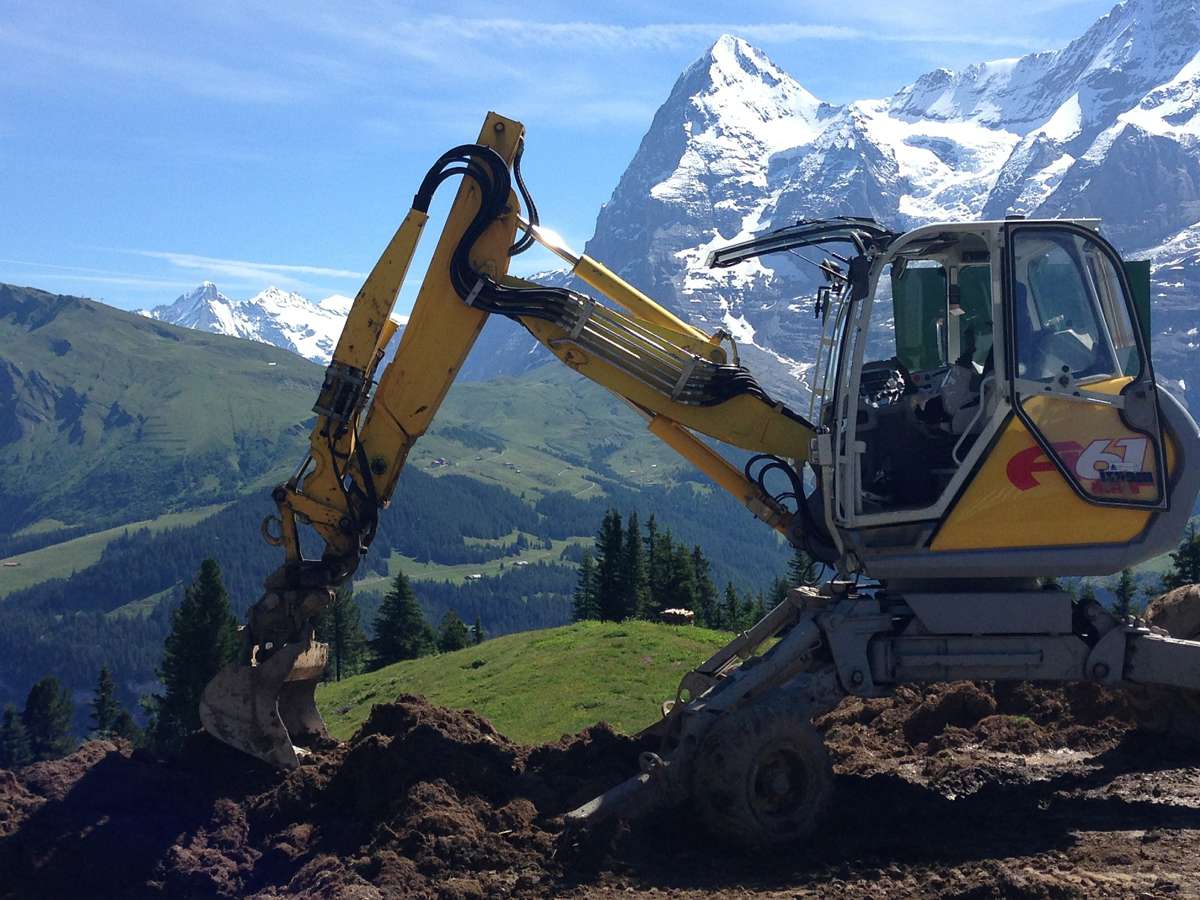Balancing sustainability and performance with biodegradable lubricants
With the construction industry under pressure to maximise its recovery and act on climate change, Shell has introduced its refreshed portfolio of Shell Naturelle biodegradable lubricants to help companies improve their environmental impact, meet tightening regulations, and strengthen their license to operate without compromising on equipment performance.
Understanding the need for sustainable construction
Construction companies face a delicate balancing act. Following the shutdowns that occurred during the COVID-19 pandemic, demand is rising as the industry is set to expand by 35% over the next decade. However, the steady increase in sustainable requirements means finding not only the resources to meet demand but also new approaches to making sure projects can deliver reduced greenhouse gas (GHG) emissions and protect the environments around them.
For construction companies, there are other issues to take care of. For example, the industry is responsible for producing one-third of all waste – a figure that already needs to be reduced for the current level of projects if it is to meet global sustainability targets.
There is also the need for firms to show that they are adopting more sustainable processes across their supply and value chains. This is especially important at a time when urban areas already account for two-thirds of energy consumption and more than 70% of GHG emissions.
Another element is the need to demonstrate careful management of their impact on local environments and their ability to protect nearby ecosystems. Mismanagement of this during projects that are taking place near woodland, farmland and waterways can only cause damage to a company’s reputation while incurring significant clean-up costs.
Businesses cannot afford to look the other way on these issues, either. All of it now has a keen impact on how firms demonstrate their license to operate along with their ability to pursue new opportunities.
Driving change across entire supply chains
Fortunately, innovation in this area is advancing rapidly with the green building materials market set to reach $425.4 billion by 2027. Day-to-day operations are becoming more sustainable as well, with new ways to reduce GHG emissions from vehicles helping companies to decarbonise their fleets.
Crucially, these emerging solutions also provide companies with the ability to improve the environmental impact of their projects. For example, OEM investment in alternative fuels and the development of powerful telematics systems enable companies to optimise fuel and equipment efficiency – balancing productivity and sustainability.
This demonstrates how the industry cannot simply focus on individual areas. Companies must explore solutions throughout their supply chain to achieve their business and environmental targets.
Improving environmental impact with biodegradable lubricants
One area of the supply chain that can have a positive impact on performance and decarbonisation in the construction industry is lubricants. Part of the mix that includes green building materials and alternative fuels; they provide companies with another route towards achieving that difficult balance between sustainability and productivity.
For example, by using premium, fully saturated long-life environmentally acceptable lubricants (EALs), sites can reduce the amount of oil they consume (in comparison to unsaturated base EALs) while contributing to waste reduction through sustainable packaging.
However, meeting growing industry demand for sustainable choices means looking at the entire footprint of a lubricant product and taking action to reduce the environmental impact across its life cycle. That is why, with Shell Naturelle products, there are many other steps taken to avoid, reduce and offset carbon emissions.
For instance, when it comes to production, the base fluids used come from renewable, plant-based raw materials (known as biobased content), which reduces the carbon intensity of the products. Also, roughly a fifth of the energy used in the blending plant that creates Shell Naturelle comes from solar power – with more than 50% of electricity used in Shell lubricant blending plants coming from renewable sources.
As we have seen, waste is a challenge that needs to be overcome in construction. One way to approach this is to use products whose packaging is designed to meet the latest 2018 EU Ecolabel requirements and help to reduce plastic waste. This is something that Shell Naturelle has adopted, with its new packaging containing a minimum of 25% post-consumer resin.
When it comes to protecting local environments, using readily biodegradable lubricants like Shell Naturelle can demonstrate careful management and strengthen a company’s license to operate. Designed to have low aquatic ecotoxicity and not bioaccumulate, they avoid harming plants, animals, and local ecosystems in the event of an accidental spill or leakage.
Beyond this, there is also the ability for companies to improve the environmental impact of their overall supply chains using carbon-neutral products. This is another area in which Shell Naturelle offers a new route to sustainability, providing fully carbon-neutral products. To achieve this, any remaining CO2 equivalent (CO2e) emissions are offset with Shell’s nature-based solutions – projects that protect, redevelop, or restore land and natural ecosystems.
Creating a wider strategy for sustainable construction
While far from being a silver bullet for sustainability, biodegradable lubricants are an often-overlooked element in a company’s decarbonisation journey. The Shell Naturelle range of biodegradable lubricants is already helping businesses to avoid or reduce their emissions through more sustainable material choices and manufacturing processes.
Adopting these products as part of wider changes is one simple step that construction businesses can take to improve the environmental impact of their operations – helping them to adapt to legislation, strengthen their license to operate, and gain a competitive advantage in an industry that is set for huge growth in the coming decades.
Find out more about the issues driving demand for biodegradable lubricants and why they should be part of a wider sustainability strategy in construction.
Read Shell’s “Releasing the Potential of Sustainable Business Decisions”.





























